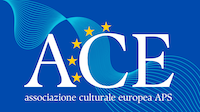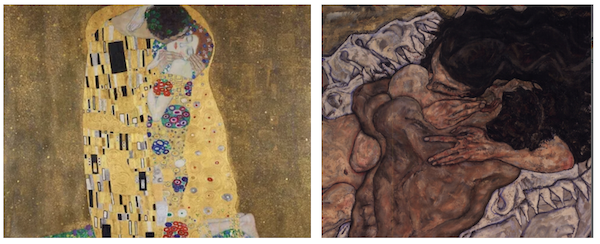
Third conference of Art Historian Serena Spinelli “Klimt & Schiele, from the Belle époque to the Vienna secession”
Gustav Klimt (1862-1918)
At the age of 14 years already, Klimt, born in Vienna, went to the Kunstgewerbeschule (Arts and Crafts School). In 1893, he founded a studio community with his brother Ernst and his fellow student Franz Matsch. His first important order was the decoration of the staircase in the new Burgtheater (Royal Theatre) in 1888. Klimt starts to leave the academic painting style, and his last important order of that time, the ceiling frescos of the three secular faculties of the Vienna university, causes a scandal. Gustav Klimt, by his painting style, the tension between rough and supple, between hard and soft shapes, becomes the pioneer of the modern age. In 1897, he is cofounder of the Vienna Secession and its first president. Until his leaving in 1905, he determinates the artistic development in a decisive manner. He enters the Wiener Werkstätte (Vienna Crafts Studio) where the artists follow his style for many years: The stylization of natural shapes, mosaics paint by templates, gold and other reflecting colours. He meets the architect Josef Hoffmann in a congenial way by building the Stoclet Palace (Brussels) where he succeeds to create a masterpiece of human figuration in decorating the dining room with his mosaics. Amongst his most famous art works are the Beethoven frieze (1902), Judith (1905-08) and The Kiss (1908).
Egon Schiele (1890-1918)
Austrian Expressionist painter, draftsman, and printmaker noted for the eroticism of his figurative works. As a student at the Vienna Academy of Fine Arts (1907-09), Schiele was strongly influenced by the Jugendstil movement, the German Art Nouveau. He met Gustav Klimt, leader of the Vienna Secession group, and the linearity and subtlety of Schiele’s work owe much to Klimt’s decorative elegance. Schiele, however, emphasized expression over decoration, heightening the emotive power of line with a feverish tension. He concentrated from the beginning on the human figure, and his candid, agitated treatment of erotic themes caused a sensation.
In 1909 he helped found the Neukunstgruppe (New Art Group) in Vienna. From 1911 onward he exhibited throughout Europe, and a special room was devoted to his work at a 1918 Secessionist exhibit in Vienna, shortly before his death from Spanish influenza. Important works include The Self Seer (1911), The Cardinal and Nun (1912), and Embrace (1917). His landscapes exhibit the same febrile quality of colour and line.
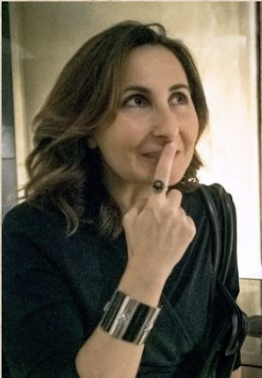
Date
- Thursday 30 Mar 2023
- Expired!
Time
- 18:00
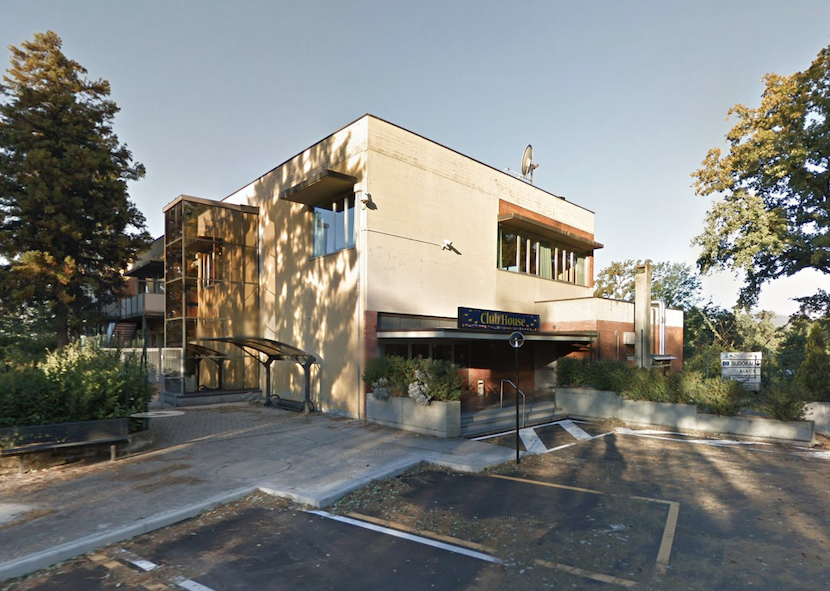
Location
- JRC Club House
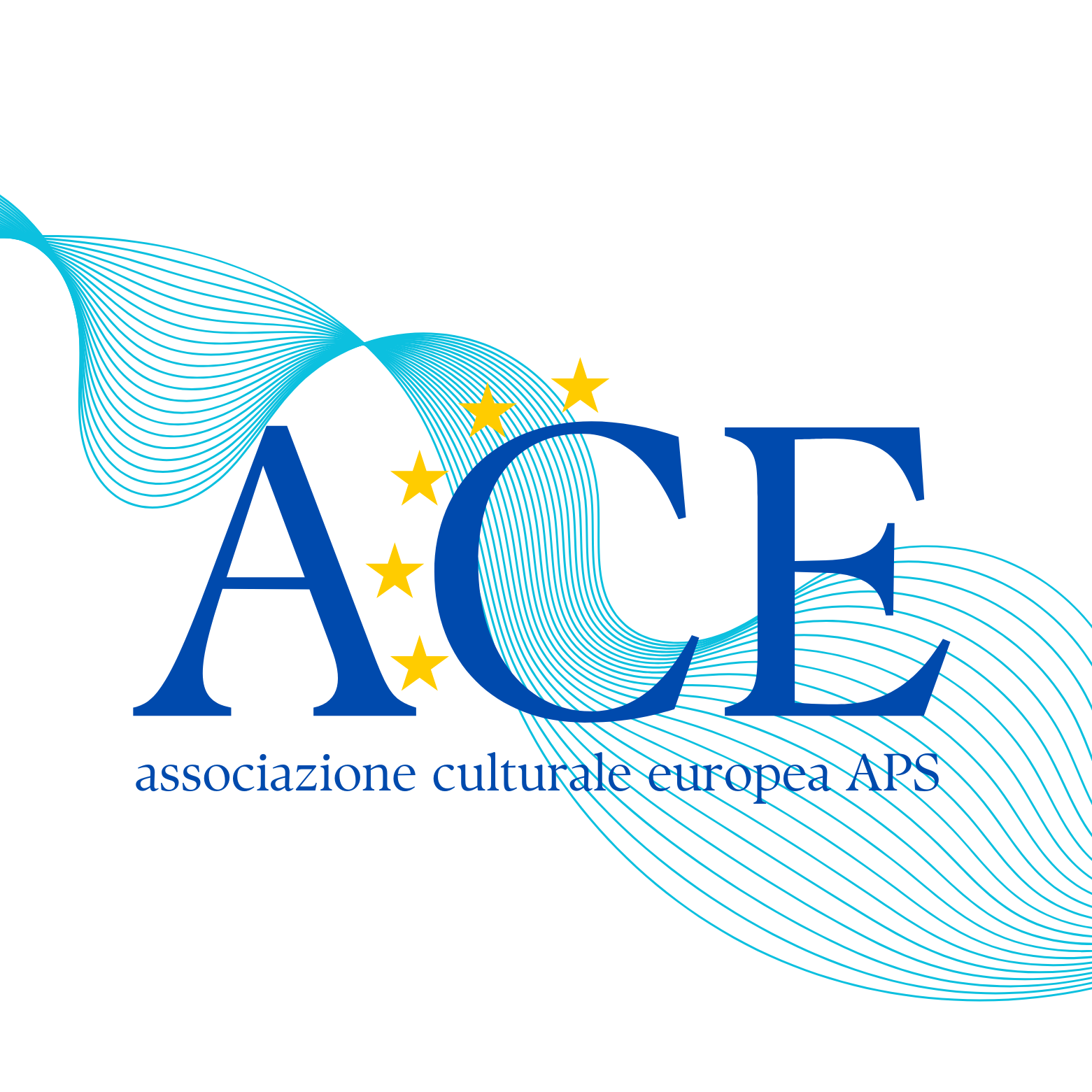
Organizer
-
Sector Conferences, Associazione Culturale Europea (ACE)
-
Email
conferenze@associazione-culturale-europea.eu

Newsletters
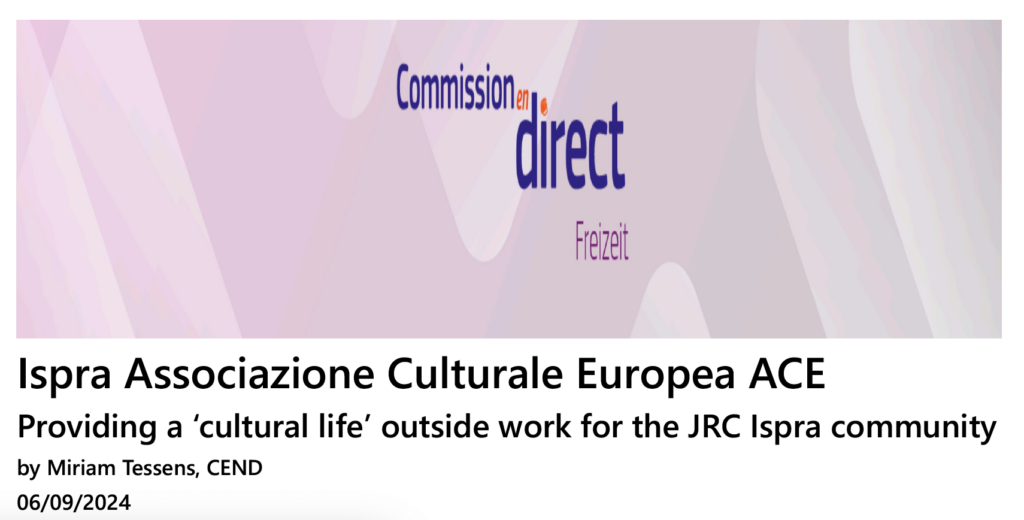
Article on ACE’s 62 years of activity that has just been published on the European Commission’s Intranet: COMMISSION EN DIRECT
L’Associazione Culturale Europea (ACE) APS è sorta nel 1962, con la denominazione di Comitato Culturale, per volontà della direzione dell’amministrazione del JRC di Ispra. L’Associazione da oltre sessant’anni svolge la sua attività di promozione della cultura in una declinazione a tutto tondo. Istituita per organizzare e gestire attività culturali del personale del Centro Comune di Ricerca (JRC), sito di Ispra, e quindi delle loro famiglie e dei pensionati, in una cornice europea, favorendo anche l’integrazione con il territorio, ha accompagnato la crescita e l’evoluzione del JRC
L'Associazione Culturale Europea (ACE) è registrata al Registro Unico Nazionale del Terzo Settore (RUNTS) dal 15 dicembre 2022
Becoming an ACE Member 2025
From the 1st December 2024 , it is possible to register online for the ACE membership 2025 (35 Euro)
From 1st December 2024, it is also possible to pay the ACE membership fee 2025 (35 Euro) in cash at ACE Library (Each Monday and Thursday morning)
Contact us
Via Enrico Fermi, 2749 21027 ISPRA(VA)
Email:segreteria@associazione-culturale-europea.eu
Tel: 0332 78 9764
Biblioteca/videoteca: Monday and Thursday morning 9-12:30
Settore Eventi: Monday and Thursday morning 10-12:30
PEC:associazioneculturaleeuropeaaps@pec.it
